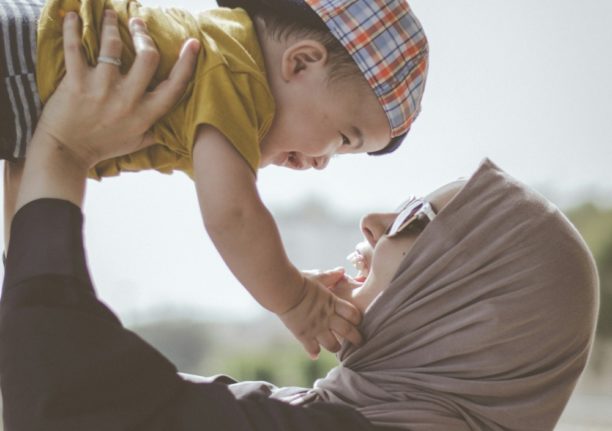“Fuck!” my father-in-law exclaimed good-naturedly from the kitchen. “Fuckedy-fuckedy-fuck-fuck-fuck!”
He hadn’t just stubbed his toe on a chair leg. He hadn’t just burned his hand on a hot plate or smashed a glass. He wasn’t reacting to any sort of mishap in fact, but rather was joking around with his granddaughter: my eldest child, age three.
The next thing I hear is child’s laughter while my wife, who is also in the room, begins her latest futile attempt to admonish her dad for using the f-word in front of the children (our baby is also present, mercifully oblivious for the time being at least).
It’s not the first time such a scenario has played out at my Danish in-laws’ place and it won’t be the last either, regardless of our protestations.
Now, I’d like to think I’m not overly sensitive when it comes to the use of expletives. I’m happy for anyone to swear like a sailor as long as they aren’t being personal.
I can also accept accidental cussing in the presence of children – not everyone is in the habit of moderating their language around kids and besides, having children doesn’t give you the right to tell other people how to behave.
But things can get a bit trying when your in-laws relentlessly say “fuck” in front of your small and very impressionable child, who is learning to speak in two different languages and mixes them together sentence-by-sentence.
Just recently, she proudly pronounced to me on the way home from kindergarten that she “can say lort [‘crap’] now”.
“You say lort?”
“Yes, but only when I need to do a lort.”
I decided to let it slide. Lort is the mildest of mild Danish swear words and, crucially, doesn’t mean anything in English.
But how can I expect someone whose potty mouth is in the prodigious stage of development not to drop the F-bomb in polite conversation next time we visit my aunt and uncle in Cambridge? I don’t think I can.
When I say my in-laws say “fuck” relentlessly, I’m not exaggerating. It’s all “fuck, that was funny”, “this tastes fucking great”, “what the fuck!” and “fuck my life!” (the last two examples uttered entirely in English). Some of these people work in childcare, I might add.
It’s well documented that the f-word (I’m going to stop repeating it now before I break a record) has a far milder meaning when used in Danish compared to English. Language experts have found that taboo words imported to other languages always lose their edge, while Denmark’s practice of subtitling, rather than dubbing movies contributes to widespread use of words and phrases which gain an aura from these movies as being ‘cool’. The phenomenon is superbly explained in this article (which I think is still just about ahead of me on the f-count).
So is it too much to ask of my in-laws – who are the most caring, considerate and devoted “other side of the family” I could have wished for my children to have – to just, please, for the love of all that is good, stop saying f*ck when we’re around?
It seems so: the word just does not tick any kind of “unacceptable” box for Danes, so out it comes before anyone has a chance to stop it.
For my part, I think I’m going to have to accept it and explain the linguistic nuances to my kids when they’re old enough. The only, risk-laden alternative is to tell the in-laws to shut the f*ck up.



 Please whitelist us to continue reading.
Please whitelist us to continue reading.
Grandparents a problem??? I have just come home after a bus journey with half a dozen youth who peppered every sentence with the adjective (??) f*cking. F*cking this, f*ucking that and every other f*cking word. Tiresome and to an english person, edge of offensive. There certainly is a problem to be addressed – though it may just be too f*cking late!!!
Yours unswearingly,
Stephen in Frederikssund.
I utterly agree! I cannot get it into the heads of my in laws that the use of the f word is so offensive in English. I can’t even write it down in this comment! American films can be peppered with it which reinforces the idea that it is an acceptable word to use in any situation. I try and tell my Danish nieces and nephews not to use it in English, as it can reflect so badly on them, if used in the wrong circumstances. But they think I’m an old fuddy duddy!
I still remember the look on my evangelical christian, American mother’s face when my danish wife dropped an f-bomb in front of her at a family gathering in the US. Priceless!
Brilliant article! I’m a Brit living in Denmark and WOW do I sympathise! My kids are grown so now it’s other kids in the family that I’m ‘trying to protect’. I’ve also had this discussion with journalists writing in English who think it’s OK to quote academics saying the F word. I like to give such academics (a lecture and) an alternative :o)). I once tried explaining it’s like using the Kn*p word in Danish. Not sure that went down too well. Hard to tell when swearing in a foreign language :o)